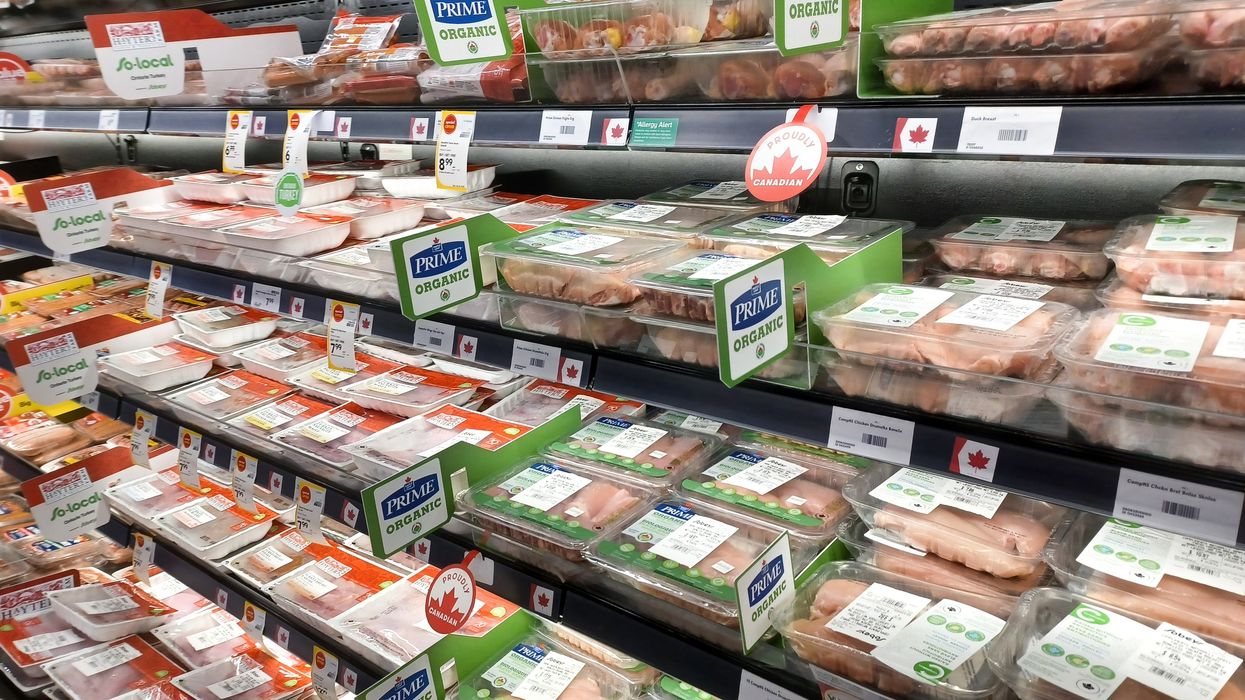Canadians could soon be eating 'cloned' meat without even realizing it
Would you willingly buy meat from a cloned animal?

Health Canada's position is that cloned meat is indistinguishable from conventional meat and safe to eat.
Does your grocery store steak actually come from a "real" animal? Soon, it may not be so easy to tell, and it all comes down to a quiet regulatory change in Canada's food laws.
According to a recent statement from duBreton, a Quebec-based Certified Humane and organic pork producer, upcoming changes to Health Canada's Novel Foods regulations will allow beef and pork from cloned animals to enter Canada's food system without a safety review and without mandatory labelling.
duBreton says the update, which is outlined in documents from Health Canada and the Canadian Food Inspection Agency (CFIA), will remove cloned animals from the definition of "novel foods." That means cloned meat would no longer require a pre-market assessment and could be sold like any other meat product, with no disclosure to shoppers.
Health Canada's position is that cloned meat is indistinguishable from conventional meat and is safe to eat. But duBreton CEO Vincent Breton says the lack of labelling leaves consumers without information.
"Consumers have the right to decide for themselves," Breton said. "The government quietly changing the definition of a novel food means that unless it's labeled organic, there is no way to distinguish brands that support animal cloning from brands that don't."
Breton added: "People want and deserve to know that."
What is cloned meat?
Cloned meat comes from animals that were created through cloning techniques, usually by taking the genetic material from a single donor animal and producing a genetically identical copy. The meat itself isn't grown in a lab the way cultivated meat is. It still comes from a real, living animal, just one produced through cloning rather than traditional breeding.
Health Canada says "there are no biologically significant differences in the composition of foods derived from healthy [cloned] cattle and swine clones versus food from healthy animals produced through natural breeding."
What duBreton is doing
In response to the regulatory change, duBreton reaffirmed several commitments in its press release:
- A zero-tolerance policy for cloned or gene-edited animals anywhere in its supply chain
- Clear "no cloning or gene editing" statements on packaging, following CFIA voluntary labelling rules
- Annual supplier verification
- Independent audits
"Innovation can be positive, but never at the expense of an honest food system," Breton said.
How other countries handle cloned meat
Canada is not the first country to open the door to cloned animals in the food system. In the United States, the Food and Drug Administration has already approved a gene-edited pig line for human consumption, and both the U.S. and countries like Australia and New Zealand have allowed unlabeled cloned meat on the market for years. In fact, the FDA says, “Yes. Food from cattle, swine, and goat clones is as safe to eat as food from any other cattle, swine, or goat.”
Europe has taken the opposite approach. Food from cloned animals has been banned across the European Union since 2015, and there is no indication that the European Commission or the EU Food Safety Authority plans to revisit that policy.
duBreton says Canada's move to align with more permissive countries, especially without any requirement for public disclosure, is "concerning."
A call for voluntary labelling
While the updated regulations will not require labels, duBreton is asking food companies to voluntarily disclose whether their products involve cloned or gene-edited animals. The company also invited retailers and supply chain partners to help increase transparency within the market.
What it means for shoppers
If the regulatory update moves forward as described, cloned beef and pork could be sold in Canada without any indication on the label, unless the product is certified organic or a brand chooses to disclose cloning practices on its own.
duBreton says it will continue to provide that information voluntarily.
Would you buy cloned meat?
- This Montreal bar hosts nude karaoke nights and it's exactly what it sounds like ›
- We compared meat prices at different Montreal grocery stores & the difference is shocking ›
- The 7 richest people in Quebec are worth $54B — Here's how they made their fortunes - MTL Blog ›
- Quebec's most stolen cars were revealed and drivers of these models should be on alert - MTL Blog ›
- Yoplait drinkable yogurt is being recalled across Canada due to pieces of plastic - MTL Blog ›
- This is your last chance to get money from Quebec's $500M bread lawsuit — no receipt needed - MTL Blog ›
- Over 20 food products were recently recalled in Quebec & some could make you seriously sick - MTL Blog ›
